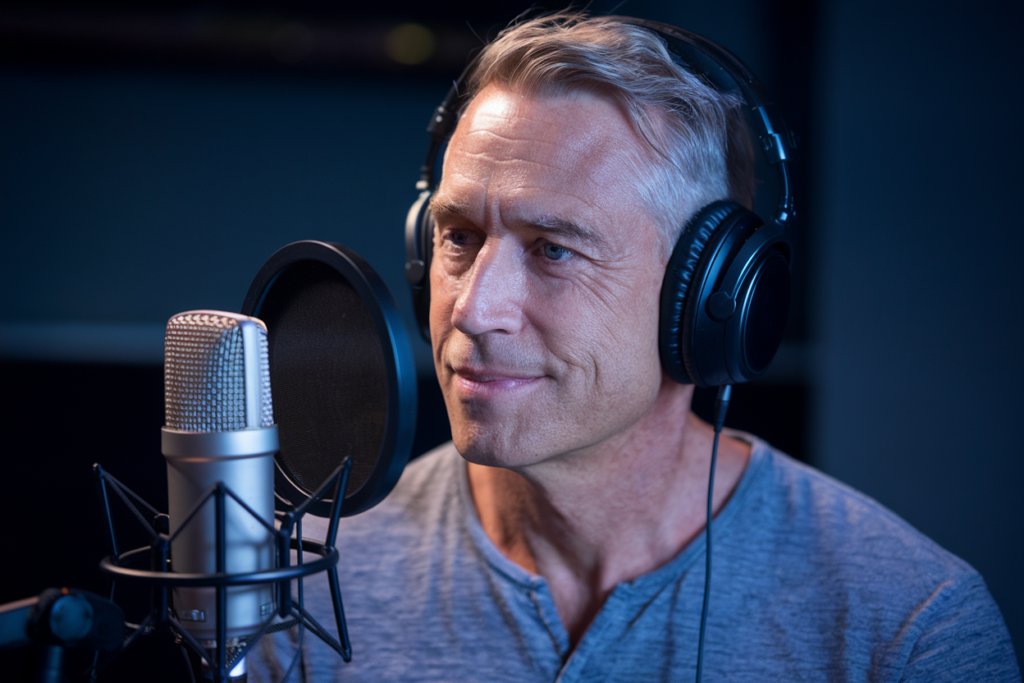Dubbing video in US English opens up a world of possibilities for creators looking to reach a broader audience. Whether you’re working on films, educational content, or promotional videos, mastering the art of dubbing can enhance your production’s accessibility and appeal.
Key Takeaways
- Understanding Video Dubbing: Video dubbing replaces original audio tracks with new voice recordings, enhancing accessibility and viewer engagement through localized content.
- Audience Reach and Cultural Relevance: Dubbing your videos into US English broadens audience appeal and ensures that messages resonate culturally with diverse demographics.
- Essential Tools for Dubbing: Utilize professional software like Adobe Audition, Audacity, or Final Cut Pro along with quality microphones to achieve high-quality dubbing results.
- The Dubbing Process: Key steps include preparing a clear script, recording voiceovers in a suitable environment, and meticulously syncing audio with video for a seamless experience.
- Effective Voice Acting Techniques: Hire skilled voice talent who can deliver authentic performances; prioritize clarity, emotion, and adaptability to enhance viewer connection.
- Post-production Editing Tips: Focus on precise audio syncing, consistent volume levels, noise reduction techniques, and the addition of sound effects to improve overall production quality.
Understanding Video Dubbing
Video dubbing is a process where original audio tracks are replaced with new voice recordings. This technique enhances the viewer’s experience by providing a localized and culturally relevant version of the content.
What Is Video Dubbing?
Video dubbing involves recording voiceovers that match the timing and emotion of the original audio. Voice actors or voice artists perform these recordings, ensuring that their delivery aligns closely with the on-screen action. The goal is to create a seamless integration of audio and visuals, allowing viewers to engage fully without distractions from language barriers.
Importance of Dubbing in Video Production
Dubbing plays a crucial role in video production for several reasons:
- Audience Reach: By dubbing your video content into US English, you can attract a broader audience who may prefer content in their native language.
- Cultural Relevance: Localized voiceovers help ensure that your message resonates with diverse demographics, enhancing relatability and engagement.
- Accessibility: Dubbing provides access to individuals who may have difficulty understanding different accents or languages.
- Professional Quality: Utilizing skilled voice talent ensures high-quality audio that reflects professionalism, thereby improving overall production value.
Incorporating effective dubbing strategies contributes significantly to successful video projects, fostering increased viewer satisfaction and retention.
Tools and Software for Dubbing
Selecting the right tools and software is crucial for effective dubbing in US English. These resources enhance audio quality and streamline the dubbing process, ensuring professional results.
Popular Dubbing Software Options
- Adobe Audition: Adobe Audition offers advanced audio editing features that allow seamless integration of voiceovers. Its multi-track capabilities support complex projects.
- Audacity: Audacity is a free, open-source software ideal for beginners. It provides essential audio recording and editing tools needed for basic dubbing tasks.
- Final Cut Pro: Final Cut Pro includes robust video editing options alongside powerful audio tools, making it suitable for professionals looking to combine video and voice talent effectively.
- DaVinci Resolve: DaVinci Resolve stands out with its high-quality video editing features while also providing comprehensive audio post-production capabilities necessary for impeccable dubbing.
- Pro Tools: Pro Tools serves as an industry standard in music production and voiceover work. Its extensive plugins help achieve superior sound quality during the dubbing process.
- Condenser Microphones: Condenser microphones capture detailed vocal nuances, making them ideal for voice artists seeking clarity in their recordings.
- Dynamic Microphones: Dynamic microphones are durable and versatile, suitable for various environments where noise reduction is necessary during voiceover sessions.
- USB Microphones: USB microphones offer convenience by connecting directly to a computer without needing additional equipment, perfect for at-home setups or quick recordings.
- Lavalier Microphones: Lavalier microphones provide hands-free operation, making them beneficial when you need mobility during a shoot or recording session involving multiple speakers.
- Field Recorders: Field recorders enable high-quality mobile recordings; they are especially useful when capturing outdoor dialogues or interviews where flexibility matters most.
Utilize these tools to ensure your dubbed videos resonate with audiences through precise sound quality and engaging voiceovers tailored to your content’s needs.
The Dubbing Process
The dubbing process involves several key steps to ensure high-quality results. Each phase plays a crucial role in delivering a polished final product that resonates with your audience.
Preparing Your Script
Preparing your script sets the foundation for successful dubbing. Start by translating the original dialogue into US English, keeping cultural nuances in mind. Ensure clarity and conciseness while maintaining the essence of the original content. Identify any necessary adaptations to align with local expressions or idioms. This preparation allows voice actors to deliver natural performances that connect with viewers.
Recording the Voiceover
Recording your voiceover requires careful attention to detail. Select skilled voice talent who can embody the characters authentically and convey emotions effectively. Set up a professional recording environment using quality microphones and soundproofing techniques to minimize background noise. Direct voice actors during sessions, providing feedback on tone and pacing to achieve desired outcomes. Multiple takes may be necessary to capture optimal performances.
Syncing Audio with Video
Syncing audio with video is essential for creating a seamless viewing experience. Utilize software tools designed for audio editing, aligning voiceovers precisely with on-screen action and lip movements when applicable. Adjust timing as needed to maintain flow between visuals and audio elements, ensuring coherence throughout the project. Review multiple times to confirm synchronization accuracy before finalizing your dubbed video, enhancing overall production quality.
Tips for Effective Dubbing
Effective dubbing requires attention to detail and the application of specific techniques that enhance overall quality. Focus on these key areas to ensure a successful dubbing project.
Voice Acting Techniques
Select skilled voice talent who can deliver authentic performances that match the original content’s emotion and intent. Prioritize clarity in delivery, ensuring each word is easily understood. Consider tone variations; different scenes may need distinct emotional expressions to maintain viewer engagement. Train your voice artists in character portrayal, allowing them to adapt their voices to fit various roles convincingly. Encourage rehearsals before recording sessions; this practice helps refine timing and improves overall vocal performance.
Editing and Final Touches
Utilize audio editing software effectively during the post-production phase. Sync voiceovers precisely with video elements to create a seamless viewing experience. Adjust levels for consistency across different scenes; this step ensures all dialogue maintains an even volume, enhancing listener comfort. Apply noise reduction techniques to eliminate background distractions, resulting in clean sound quality that allows your audience to focus solely on the content. Finally, consider adding subtle sound effects or music where appropriate; these elements can enrich the overall audio landscape without overshadowing the primary dialogue.
Conclusion
Dubbing videos in US English can significantly elevate your content’s reach and engagement. By mastering the dubbing process and utilizing the right tools, you can create polished versions that resonate with diverse audiences.
Remember to focus on selecting skilled voice talent and maintaining high audio quality throughout your project. Effective preparation and attention to detail during recording and editing will ensure a seamless viewing experience.
Implementing these strategies not only enhances accessibility but also boosts viewer satisfaction, making your video projects more successful overall. Embrace the art of dubbing to unlock new opportunities for your creative work.
Frequently Asked Questions
What are the benefits of dubbing videos in US English?
Dubbing videos in US English expands audience reach, enhances accessibility, and improves cultural relevance. It allows creators to connect with diverse viewers while elevating production quality through skilled voice talent. This can lead to greater viewer satisfaction and retention.
How does the dubbing process work?
The dubbing process involves several key steps: preparing a script that translates original dialogue into US English, recording voiceovers with skilled talent, and syncing audio with video using editing software. Each step is vital for creating a polished final product.
What tools are essential for effective dubbing?
Essential tools for effective dubbing include audio editing software like Adobe Audition and Pro Tools, as well as various microphones (dynamic, condenser, USB) and field recorders. These help enhance sound quality and streamline the dubbing process for better results.
Why is selecting skilled voice talent important?
Selecting skilled voice talent ensures authentic performances that resonate with audiences. Talented voice actors bring clarity, emotional expression, and engaging delivery to dubbed content, which significantly impacts viewer experience and overall project success.
What tips can improve my dubbing project?
To improve your dubbing project, focus on rehearsals to refine timing and vocal performance. Ensure precise syncing of voiceovers with video during editing and adjust audio levels for consistency. Consider adding subtle sound effects or music to enrich the audio experience.







